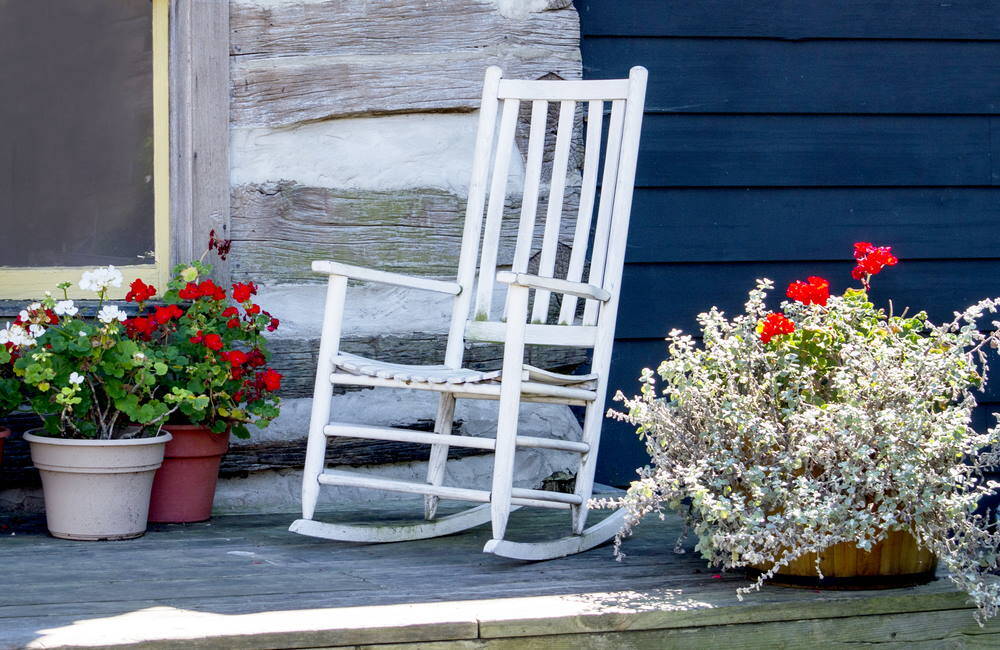Lynn’s Story: Learning to Put First Things First

Lynn describes herself as strong and devoted, characteristics she no doubt inherited from her father who weathered the Great Depression and the Korean War. Lynn relied on these qualities during the seven years she cared for him. In the face of a stroke, heart disease, and four forms of cancer, Lynn’s father remained compassionate, kind, and sweet. “My dad was a lovely man; one of the best men I ever met.”
Mornings were special for the two of them. An instinctive nurturer, Lynn did her best to make the house cozy, rising early to open the curtains at the large picture window where he sat to do his breathing treatments, and turning up the heaters to make sure he’d be warm. “He was always in a good mood in the morning. I’d yell ‘Morning, Dad!’ and he would sing back, ‘Mor-ning!’ We did that ritual every day. Even with cancer all through his body, he would still get up each morning and want to live. You could hear it in his voice.”
Although she treasured each moment with her father, including train rides and trips to Niagara Falls and nearby lakes, the realities of caregiving began to take their toll on Lynn. He had suffered his first stroke in the night, and knowing many stroke victims often had another, Lynn wasn’t able to sleep soundly for years. Instead, she stayed on high alert, listening for his every movement and sound. “You never get any time off when you are a live-in caregiver,” she explains. “There was a TV playing in my mind. It was the Dad Channel 24/7 and it never turned off.”
A Learning Curve
One day a friend sent Lynn a link to the Hope Grows website where she saw a photo of the Iris Respite House and read about the various caregiver support services available. She was impressed by the range of choices, and as a private person, was attracted by the caregiver support services that did not feel invasive to her life or her father’s. “At Hope Grows you can have a full meal or just an appetizer; there are so many things to choose from.”
Lynn signed up for monthly Caregiving Counselor calls. It was the first time in seven years that she felt she wasn’t alone. “When the phone rang, I was so relieved to hear from her. Those calls meant the world to me.” Lynn also found that talking to a person on the phone, without knowing what they looked like or anything about them, made the experience more powerful. “It was pure communication,” she describes, “a compassionate voice, speaking right from their heart to mine.”
In the summer, Lynn attended a workshop where she met other caregivers and saw herself in them when she heard their stories. “It wasn’t always good stuff,” she admits. “I could see my own issues more clearly in them. Those of us who fall into the caregiver role easily are always pushing so hard to do for others and not stopping to care for ourselves.”
Learning to Grieve with Support
When Lynn’s father passed on, Hope Grows was still there for her through grief and aftercare support. “Everyone’s there at the beginning of death but then after a few weeks you’re all alone again.” She stresses that Hope Grows understands the unique grieving process of caregivers. “I didn’t just lose my dad; I lost my role as a caregiver. Hope Grows is the only place that really understands this.”
As Lynn looks back on the years of caring for her father, there are many things she treasures, and just one that she regrets. Her father loved to sit in his rocker on the front porch all day. She would sit with him for a while, then rush off to handle the endless list of caregiver tasks. “If I could do it again, I would find help to do those other things. I would sit on the porch with him and spend more time as his daughter, not as an invincible caregiver.”
